Research Areas

Blockchain for Smart City and Fintech Applications
This research focuses on developing consensus algorithms for blockchain deployment in Fintech and smart city applications. The Fintech applications specifically concern banking and the smart city applications are about Internet of Things (IoT), Intelligent Transportation System (ITS), and energy trading in smart Grid.

Vehicular Ad-Hoc Networks / Network Communication
This research focuses on transforming cooperative traffic solutions by leveraging an array of computational intelligence methodologies. Guided by the threefold structure of this research, this research tackled the complexities of dynamic vehicular environments.
.png)
Security in Internet of Vehicles/ Internet of Things
This research area is security and privacy solutions for the Internet of Vehicles (IoV) and Internet of Things (IoT) devices, focusing on lightweight cryptographic algorithms to ensure data confidentiality, integrity, and authentication using lightweight cryptographic functions.
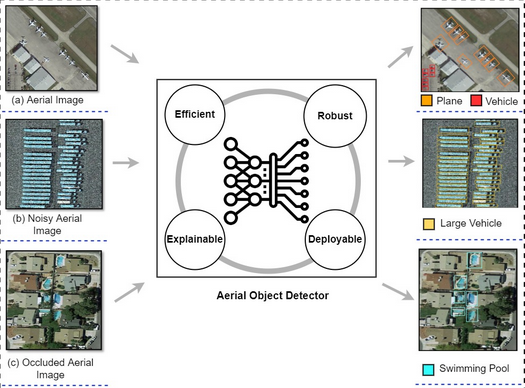
Aerial Image Analysis, Object Detection, UAV, Explainable and Responsible AI, Multimodal Learning
This research area aims to develop a novel approach to detect objects through aerial images, which will solve the aerial image challenges in practical and minimum computation complexity such that this model can deploy for real-time applications.
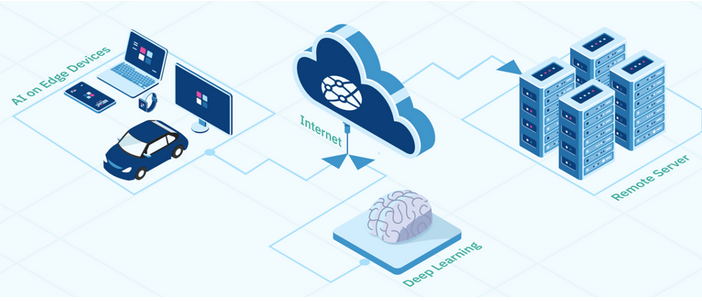
Distributed Machine Learning (Federated/Split), Mobile - Pervasive and Edge Computing, Intelligent Transportation
This research is focused on the problems related to Driver Behavior Analysis, Taxi Ridesharing, and Last Mile Parcel Delivery to make Next-Generation Transportation safe, fuel-efficient, and profitable.
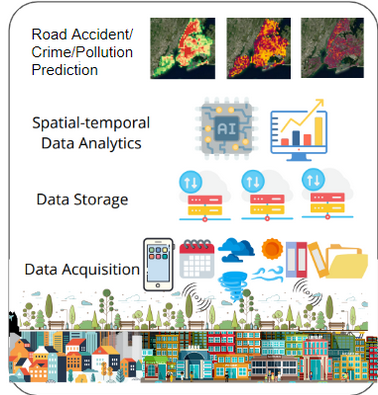
Spatio-temporal Learning, Urban Computing, AI for Social Good
This research focuses on utilizing deep learning techniques to enhance city intelligence, from designing spatio-temporal predictive models to ensuring fairness in predictive models.

Deep Reinforcement Learning and Computer Vision
This research develops a deep reinforcement learning algorithm that dynamically adjusts motion planning strategies for autonomous vehicles in response to environmental changes, ensuring adaptability and continuous learning.
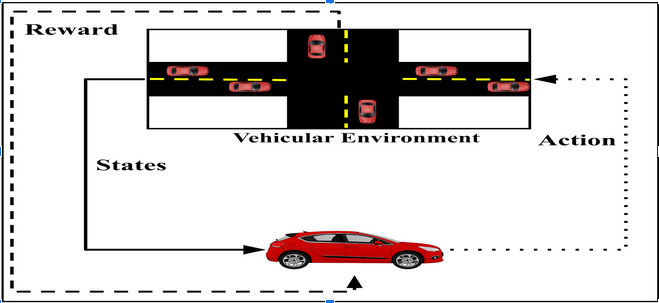
Internet of Things/Electric Vehicle
This research focuses on the intersection of the Internet of Things (IoT) and electric vehicle (EV) research, representing a dynamic and transformative field with significant implications for the future of transportation and smart infrastructure.
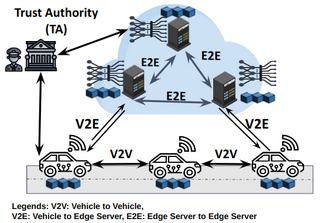
Private Blockchain-based Applications
This research develops novel consensus, trust, and access control mechanisms for private blockchains. These solutions aim to provide confidentiality and ensure the integrity of transactions within closed networks.
Specialties
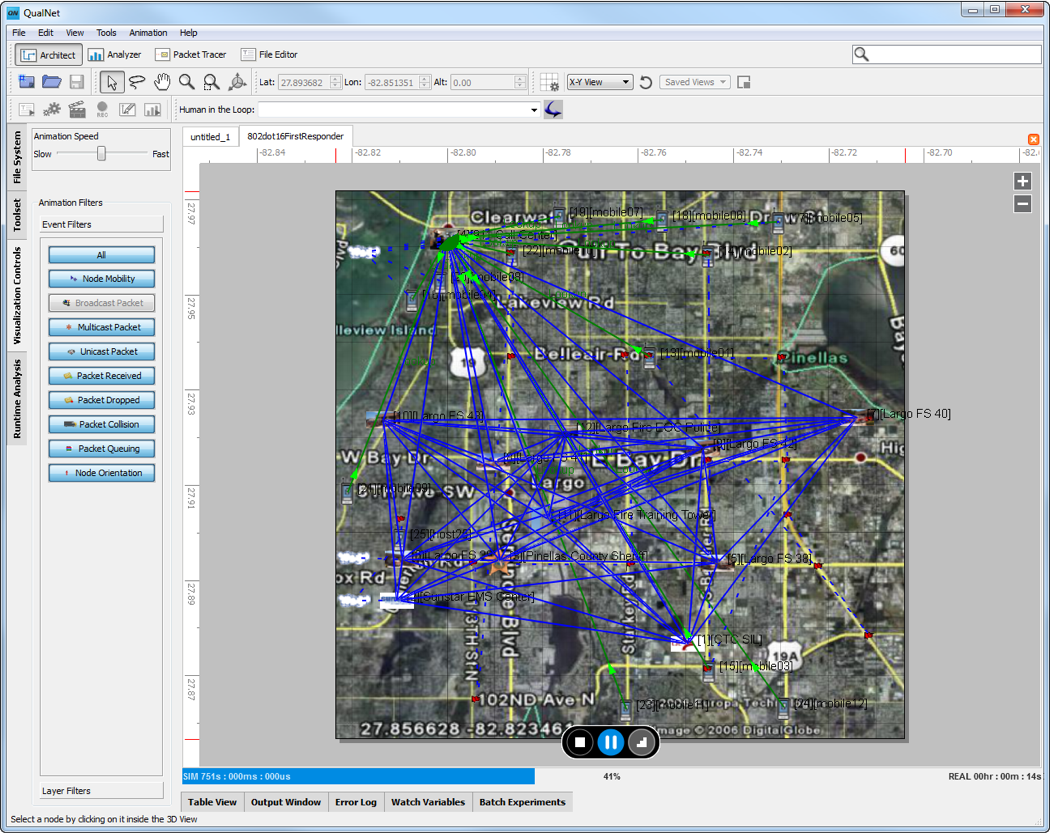
EXata Network Emulator Software (QualNet)
VANET laboratory is equipped with licensed EXata Network Emulator Software (QualNet), which helps in network planning, testing and development. The Qualnet Software helps to mimic the real-time communication network and provide an efficient method to evaluate network behaviour and performance.
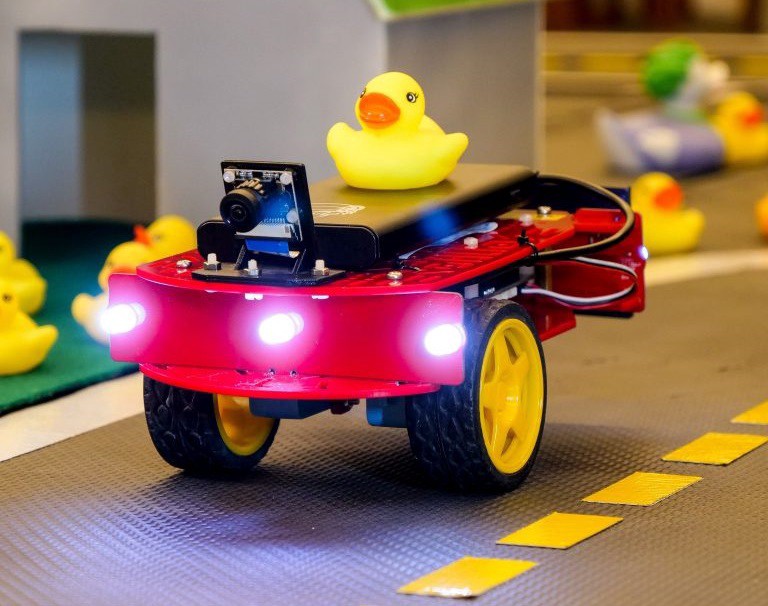
DuckieTown AI Lab
Duckietown AI setup is an integration of AI and machine learning in transportation networks to perform autonomy of the vehicular network. It helps students to implement real time vehicular network testbeds and test their network. Duckietown is an integration of advanced technologies using electronics, computers, communication and smart sensors.


Open source simulator
Implementation of Real-Time Vehicular Networks Testbed (using OBU & RSU) and open source software such as ns2/ns3 and OmNet ++ among many others are available in the lab. The students also get hands-on with experiments using Network Hardware (i.e., IoT devices, Raspberry Pi, Routers, Switches, Firewalls, PCs, Servers, Laptops, Sensors, and Arduino) which help to monitor network usage, bandwidth, throughput, delay and security attacks.